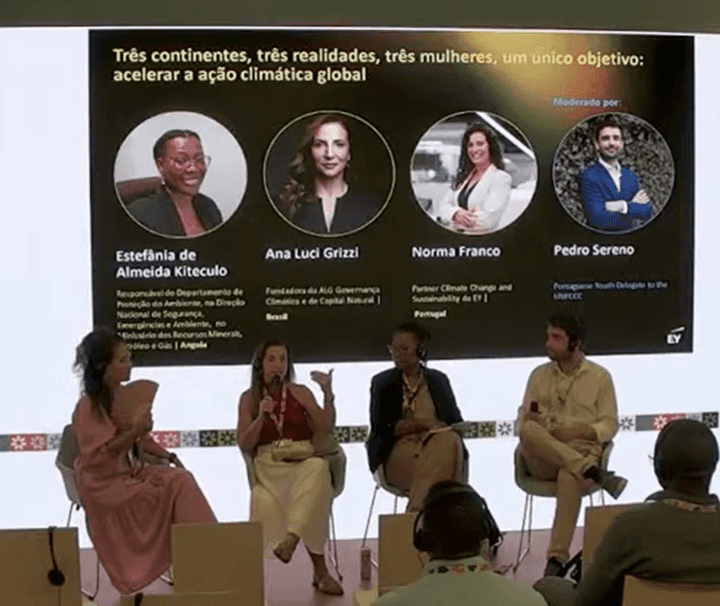Three continents, three realities, one purpose: to accelerate global climate action
During COP 30, we followed an inspiring debate that brought together voices from Portugal, Brazil and AngolaNorma Franco (Portugal), Estefânia de Almeida Kiteculo (Angola) and Ana Luci Grizzi (Brazil) shared their visions, experiences and strategies, showing how true impact comes from diversity. The conversation showed that, although each country faces different challenges, they all share the same commitment: to transform their realities into opportunities for a more sustainable and inclusive future.
Portugal highlighted Europe's role in building a coordinated response to the climate emergency, with the European Green Deal as an engine of transformation. Instruments such as European Taxonomy and Sustainability Reporting Directive (CSRD) are driving companies and investors towards a greener and more transparent economy. Portugal, with the goal of neutralidade carbónica até 2045The European Council, positioning itself as a "good student", recognizes that the pace of transition needs to be accelerated.
Brazil brought a perspective based on valuing nature as an economic and social asset. In a country where most emissions come from change in land useThe priority is to combat illegal deforestation and create market incentives to conserve forests. Innovative initiatives such as jurisdictional carbon market and National Bioeconomy PolicyIn this way, they show that it is possible to generate economic and social value by protecting biodiversity - promoting what they call "nature in the balance".
Angola presented the steps it has taken to integrate the climate agenda in its national development. With strategic plans until 2050 and policies aligned with the UN Agenda 2030The country is seeking to diversify its economy and reduce its dependence on oil by investing in renewable energies and in a green economy. The challenge is great, but the vision is clear: to turn the energy transition into an engine for sustainable growth.
The dialog between these three leaders showed that global climate action depends on bridges between continents and sectors. From European regulation to Latin American innovation and African resilience, each region has something to teach - and a lot to learn.
